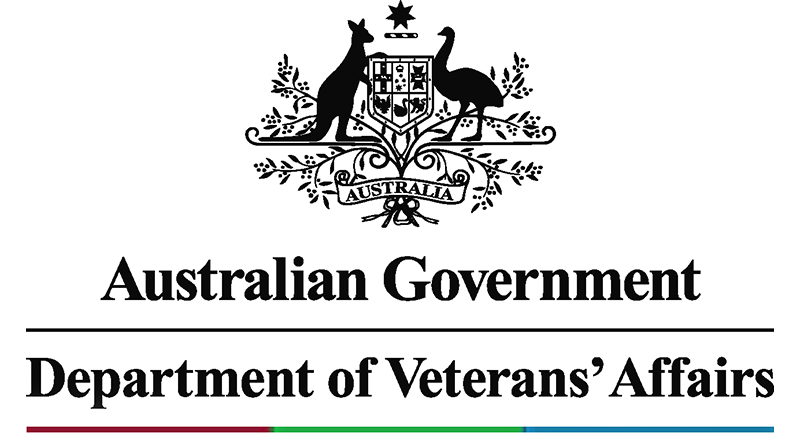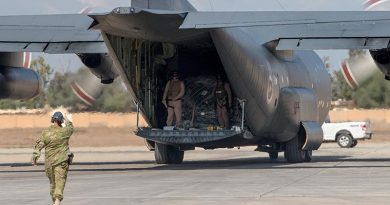New Veterans’ Covenant, card and lapel pin

Veterans and their families are at the centre of a fresh package of initiatives from the Morrison Government to recognise their vital role and service to Australia.
Minister for Veterans’ Affairs Darren Chester said the government understood the home front was just as important as the front line.
“Our government will develop an Australian Veterans’ Covenant that will be enacted in legislation so the nation can recognise the unique nature of military service and support veterans and their families,” Mr Chester said.
“Like the United Kingdom Armed Forces Covenant, the Australian Veterans’ Covenant is for the Australian community to recognise the service and sacrifice of the men and women who commit to defend the nation, and pledge their commitment to support veterans and their families.
“As part of this Veterans’ Covenant, a new Australian Veterans’ Card and an Australian Veterans’ Lapel Pin will make it easier for all Australians to recognise and respect the unique contribution that veterans have made to Australia and for our veterans to reconnect with others who have served.
“As we have seen throughout the Invictus Games and in the lead up to the Centenary of Armistice, Australians want to acknowledge and show respect for our veterans who have given so much in their service.
“Businesses, government and community organisations can also play their part in recognising and respecting those who have served.
“The card and the pin can help these organisations identify veterans when they aren’t wearing their uniform or medals, so they can offer discounts and extra support.
“The new card and lapel pin will, for the first time, enable everyone across the nation to recognise and acknowledge the unique nature of military service and support the more than 300,000 veterans in Australia and their families.”
Mr Chester said the Prime Minister would be writing to businesses and communities to urge them to recognise the service of our veterans.
“In addition to the record $11.2 billion annual support our government delivers for veterans and their families, we will invest $11.1 million in these measures to deliver a national approach to recognise veterans and will further consult defence and veterans communities in coming weeks.
“We will also deliver $6.7 million to develop the SoldierOn Fussell House accommodation facility to be co-located at the Concord Repatriation Hospital in Sydney that the NSW Berejiklian Government is investing more than $340 million to rebuild.
“This includes the National Centre for Veterans Health – an Australian first, state of the art centre for specialised health care for veterans.
“Named for Lieutenant Michael Fussell who was serving with the Special Operations Task Group in Afghanistan when he was killed in action by an improvised explosive device, the facility will house up to 40 veterans and their families at a time and will especially benefit those from regional and rural areas when veterans are getting treatment.
“Our government will also invest $7.6 million for the Kookaburra Kids Defence Program to boost their targeted support to children of ex-serving defence force members who are experiencing mental health issues due to their service.
“The Kookaburra Kids Defence Program was first supported by our government with a $2.1 million injection in a pilot program in NSW, the ACT, Queensland and the NT for 569 children, and this extra investment will see the program expand into Victoria, South Australia and Western Australia for 1750 children.
“As a country we can always do more to recognise and back in our veterans.
“Our government is committed to setting Australia up to support the veterans of today and tomorrow.”
.
.
.
.
.
.

.
.






When will the lapel pin be available?
https://www.contactairlandandsea.com/2019/11/06/veterans-card-lapel-pin-covenant-officially-launched/
Who do We contact to apply for the lapel pin and new card for Joseph Cosgrove , please?
https://recognition.dva.gov.au/how-veterans-can-apply-information-page
The lapel badge being presented to our veterans is a great idea. You mention one for reservist can you elaborate on this.
Eligibility Notes
Permanent ADF – includes serving / ex-serving / national service member of the Permanent Forces of the ADF with one day’s permanent service. This group will also include those entitled to:
treatment for an accepted service related injury or condition; and/or
Non-Liability Health Care (NLHC) for mental health conditions, cancer (malignant neoplasm) or pulmonary tuberculosis.
Reservist with CFTS – a member / ex-member of the Reserve forces who has rendered a period of Continuous Full Time Service (CFTS). These members are treated the same as ‘Permanent ADF’.
Reservist with NLHC-MH eligibility – a member / ex-member of the Reserve forces without CFTS, but entitled to access Non-Liability Health Care (NLHC) for mental health conditions due to their service with Border Protection, Disaster relief, and/or Involvement in a serious service-related training accident.
Reservist with accepted condition – a member / ex-member of the Reserve forces not recognised in the “Reservist with CFTS” but has an accepted service related condition.
Reservist – a member / ex-member of the Reserve forces not recognised in the “Reservist with CFTS”, “Reservist with accepted condition” or “Reservists with NLHC eligibility” categories.
DVA Health Card Holders not above – a client who currently holds or becomes eligible for a DVA Health Card for an accepted service related injury/condition, NLHC eligibility, or other treatment entitlements such as:
War Widow/ers
Orphans and Eligible Young People
British and Commonwealth Allied (BCAL) veterans, eligible under the VEA and MRCA
Australian Federal Police (AFP) eligible under the VEA
Allied veterans with a Health card to facilitate treatment in Australia on behalf of an Allied country
BCAL WW2 veterans with an Orange card who have access to subsidised RPBS pharmaceuticals
British Nuclear Testing (BNT) civilians
Civilians eligible for veteran-like entitlements.
Dependant – clients who may receive payments or services due to their dependant relationship with a Veteran and who do not have an entitlement to treatment (DVA Health Card), e.g. Partner Service Pension, education payments, etc.
Other Clients – clients who are not recognised in the above categories.